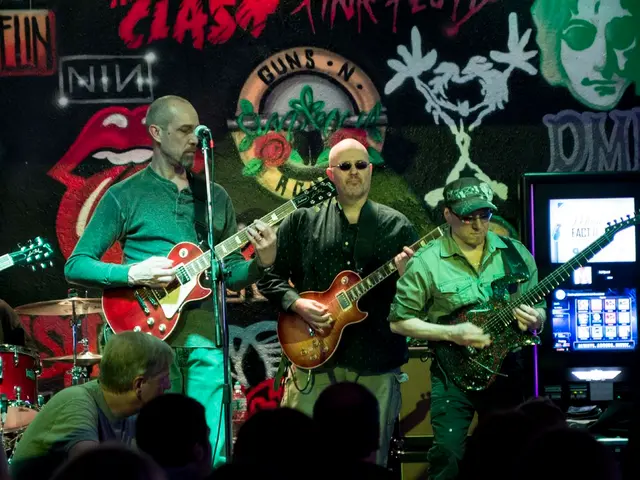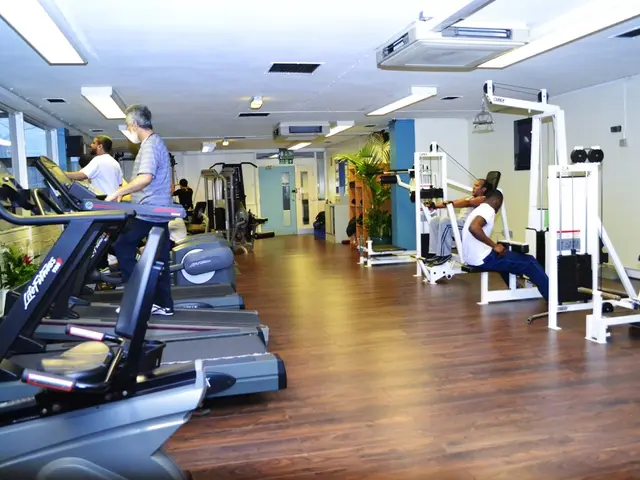Men's lives being cut shorter more frequently due to non-essential factors
Hey there! Taking care of your health is super important, but it's a different world for men and women.
Women might start their yearly check-ups after menstruation, including essential screenings for female-specific cancers. This routine preventive care becomes a habit and is ingrained in their lives. However, for men, it's a different story.
Our society likes to tell us that we need to be tough and hardy, which prevents young men (and older ones too) from taking care of their health. Unfortunately, this is a habit that's hard to change.
Recent research shows just how much this reluctance is impacting men's health in a negative way. In fact, last year, the life expectancy gap between men and women grew to as much as six years. This increased gap is due in part to preventable deaths that could have been avoided with regular check-ups and screenings.
So what can we do to change this?
A new survey by the Cleveland Clinic looked at four different generations - Gen Z, Millennials, Gen X, and Boomers - to see how they approach healthcare. They found that Gen X and Boomers are more likely to get a yearly physical, avoid smoking/vaping, and discuss mental health compared to Millennials and Gen Z men.
Additionally, the survey revealed that most men fear getting cancer, but rates of screenings and cancer awareness remain low. Here are some more shocking stats:
- One-third of Gen X and Boomers who are eligible for colorectal cancer screening have not been screened or are not sure if they've been screened.
- A quarter of men with an average risk of prostate cancer (50+) have not been screened or are not sure if they've been screened.
Don't be like Scott Stephens, a 62-year-old who never thought about his health care until his father developed prostate cancer. Take your health seriously from a young age! Here's what you should be doing at each stage of life:
In your 20s or 30s. Stop relying on the Internet. Make an appointment and get a handle on how healthy (or unhealthy) you are.
In your 40s. Colon cancer screenings should start when you're in your 40s and repeat every 10 years. If you have a family history, screening should start five years earlier than the age at which the relative was diagnosed and be repeated every five years. Prostate, bladder, and kidney cancer screenings should also begin in your 40s.
In your 50s or 60s. This is when urologic issues tend to crop up. Many men come in with erectile dysfunction but discover they have a more serious prostate problem. Besides the standard PSA test, doctors have other ways to gauge a man's risk.
Finally, don't forget about your mental health, guys! It's never too late to start taking care of your mind as well as your body.
Sources:
- National Cleveland Clinic Survey Examines Generational Divide in Men's Health - Cleveland Clinic
- It's Time to Man Up and See a Doctor - Web MD
- Widening Gender Gap in Life Expectancy in the US, 2010-2021 - JAMA Internal Medicine
- Mars vs. Venus: The gender gap in health - Harvard Medical School
Pro tip: Taking your body from acid to alkaline can boost your energy, improve your digestion, and help you achieve better overall health. Check out the Alkaline Secret to Ultimate Vitality for more!
- Science reveals that the reluctance of men to prioritize health check-ups and screenings is significantly impacting their health, with last year's life expectancy gap between men and women growing to as much as six years, largely due to preventable deaths.
- To bridge this gender gap, it's crucial to promote health-and-wellness awareness specifically for men, equipping them with knowledge about screenings like colorectal and prostate cancer, which are often overlooked, as advised in the Cleveland Clinic's survey on different generations and their approach to health care.








